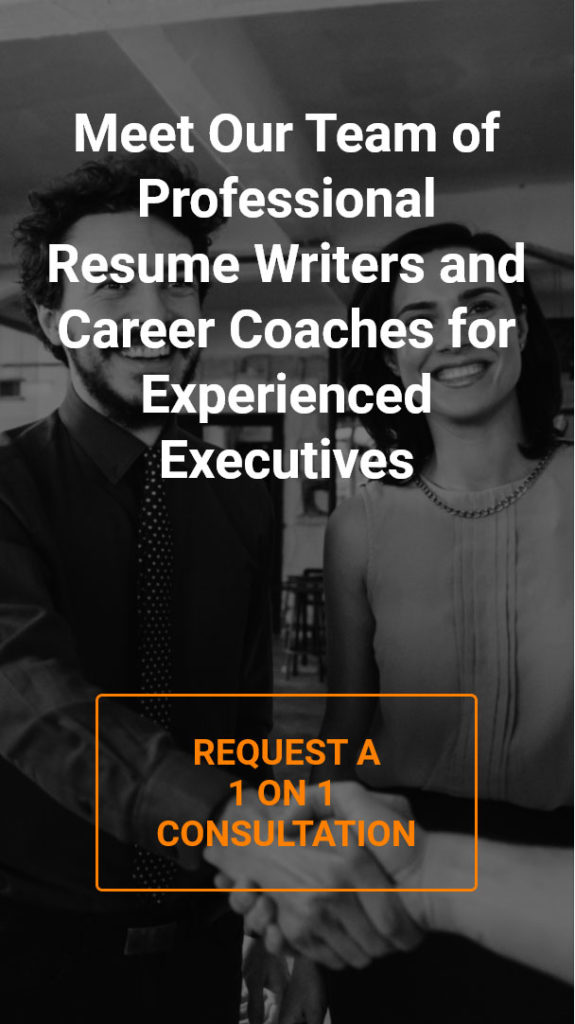At the executive level, the expectations for potential candidates are elevated and the interview process can be intensive, in-depth, and lengthy. You can expect to speak with an array of individuals including recruiters, hiring managers, and executive leaders, so you should be prepared to answer a range of questions that assess the depth of your experience, strategic leadership, and ability to navigate challenging situations. Below are 17 questions you might encounter along with insights on how you can compellingly communicate your professional brand and career narrative.
- Can you recall a situation where you led a team through a challenging project, and what was your approach?
Like many of the questions in a senior-level interview, be ready to describe specific examples that detail your leadership experience, processes, and results. You can approach a question such as this by outlining the challenge, describing the action and strategy you conceptualized to solve the problem, and explaining the result. Additionally, this is an opportunity to express your leadership style (servant leader, visionary, coach) as the basis for how you were able to lead your team in overcoming the challenge.
- How do you approach strategic decision-making in your current role? Can you give an example of a strategic initiative you led?
At the executive level, it is expected that you can design and execute innovative and high-impact strategies that drive organizational success. Be prepared to provide a detailed illustration of a specific strategic initiative, how you achieved success in that venture, and what metrics you have to show for it. For example, you may have developed a project strategy to reduce the costs associated with a high-value contract; provide that example, explain the situation and the tasks you completed, and then discuss the action and its outcome, such as the percentage of costs saved.
- How did you manage a conflict within your team and what was the result?
Navigating conflicts and providing strong leadership that resolves problem issues are key attributes for an executive leader. In answering this question, reflect on a situation where you were confronted with a conflict, either between you and someone else or between two subordinates, and explain your strategy for forging a resolution. This would be a great opportunity to showcase soft skills such as empathy, communication, and emotional intelligence.
- How have you managed significant change or a restructuring effort in an organization?
Change management is about creating trust and effectively communicating information about the modifications to maintain harmony and engagement throughout an organization as it transforms. If you have an example with this type of situation, be it from a merger or the implementation of new approaches such as Agile or Lean methodologies, you’ll want to explain how you contributed to the restructuring effort in terms of strategic planning, execution, and communication.
- How do you stay informed about trends and changes in our industry?
Continual learning is key to ensuring your professional brand is relevant to a continually evolving world. This question allows you to describe any high-level certifications or ongoing education you are pursuing in your industry. Additionally, or if the former doesn’t apply, you can mention your memberships in professional organizations, networking, or community engagement you’ve participated in recently.
- Can you discuss a complex project where you successfully applied your technical skills?
In a technology-driven world, the ability to engage with technology, either directly or through expert leadership of a team, is becoming a more and more relevant capability in an executive’s arsenal. This question is an opportunity to provide a specific project or scenario that required a technical solution and for you to explain your strategy, process, leadership, and resulting deliverables.
- How would you describe your management and leadership style?
Convey your passion for leading people and demonstrate your ability to grow and develop a team of high performers. Explain how you can bring diverse experiences or a new approach that might add value to or accelerate business operations. This is also an opportunity to further reinforce soft skills that have established you as an effective executive leader.
- Give an example of a particularly challenging problem you faced in your role. How did you solve it and what was the outcome?
Don’t be generic. Show you can fully understand the problem, work through possible solutions, and decide on and implement the best resolution. When presenting this information, it’s useful to use the CAR method (Challenge, Action, Result) to structure your story concisely while highlighting the key skills that enabled you to solve the problem.
- What do you consider your greatest professional achievement? Conversely, can you discuss a significant setback and how you handled it?
It is natural to speak to your successes in an interview and desire to avoid elements of your career you are less proud of, but great leaders balance confidence with humility, and everyone encounters adversity at some point in their career. Overselling yourself may cause interviewers to have reservations about your experience. Talking about difficulties you’ve faced might make you a more attractive candidate than someone who appears to have had an easy ride and will show your ability to overcome setbacks and deal with challenging situations.
- What is your vision for your career in the next 5-10 years?
This question can cause unease in some candidates as they might not have a definitive answer. You can, however, use this question as an opportunity to demonstrate that you’re motivated and goal-oriented. Describe how this job would fit into your long-term goals. Tie your answer to the position you’re interviewing for and emphasize your willingness to continually learn and develop as a professional.
- How do you align with our company’s values and culture?
This answer will depend on the specific company and culture, so be sure to research the company’s mission statement so you can speak about your shared values using keywords. Additionally, you can describe your potential contributions to continuing or enhancing the company’s culture. Again, this is an opportunity to elaborate on your stronger soft skills.
- How do you build and maintain high-performing teams?
Do you lead by example? What sorts of attributes do you possess that make you an effective leader who attracts and retains top talent? Do you encourage original thinking? Do you provide opportunities for internal advancement? This is an opportunity to describe both your leadership style and what you do to maintain a high-performing, engaged team committed to the organization’s strategic vision.
- Can you share an experience where you had to develop the skills of your team members?
Answer this question with evidence of how you have actively sought to develop the skills of team members through additional training, mentoring, coaching, or other on-the-job learning. What were the results of these opportunities? For example, did this training position someone for promotion within the company?
- Was there a time when you had to make a difficult decision that affected your entire team or department?
Articulate your thought process and rationale for making the decision, especially if the decision wasn’t fully agreed upon by all team members. Explain how you considered the perspectives of team members and the organization before making a final choice and how you navigated the effects of that decision.
- Can you talk about a time when you had to lead during a crisis?
Provide a specific example of a time when you faced adversity and were able to de-escalate a difficult situation. Describe the steps you took to remain professional and calm in a time of crisis, including communication, problem-solving, decision-making, adaptability, and recovery. In other words, how did your leadership ensure that your team navigated the crisis effectively?
- How do you adapt to rapidly changing environments and technologies in your field?
This question is another way of asking how you remain relevant in a constantly evolving industry, whether it be through professional development, participation at industry conferences, or engagement with cutting-edge technologies. Describe a specific example of how you leveraged an innovative idea or technology to solve a high-level challenge.
- Do you have any questions for us?
Don’t overlook this critical aspect of the interview. Asking insightful questions will demonstrate your expertise, leadership skills, and understanding of the organization’s needs and challenges. Depending on the scope of your role, some examples of questions you might ask include:
- What are the most significant challenges currently facing your team or department, and how do you envision this role addressing them?
- How open is the company to innovation and change, especially from new senior-level hires?
- What resources or support structures are in place to help the person in this role succeed?
Preparing thorough, thoughtful responses to these questions in advance, ideally with specific examples from past experiences, can significantly aid a senior-level job seeker in making a strong impression during their interview. For more career success strategies, visit www.executiveresumewriters.com.


